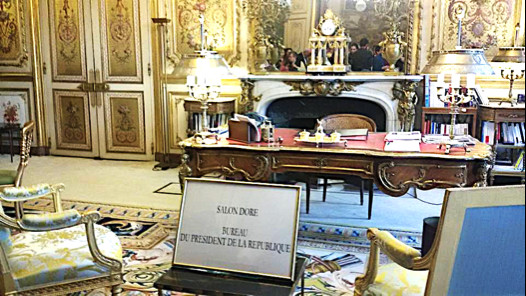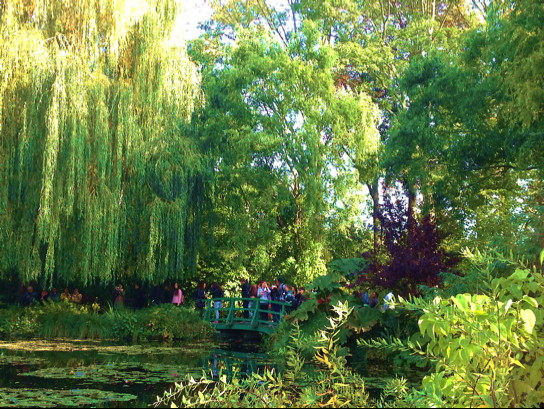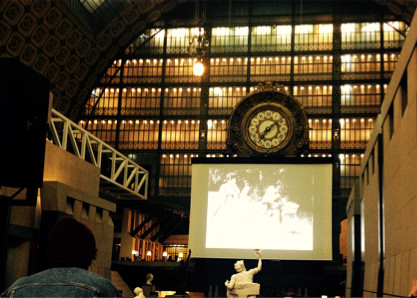Living (and surviving) in Paris
You dreamt this moment, you waited for it with contrasting feelings, a mixture of melancholy and excitement, and now, you can finally live there: Paris is waiting for you. Its boulevards are still green, you will get sick of the pain au chocolat in the next ten months and then you will live an unforgettable experience in the most romantic city of the world.
Paris will overwhelm you, it will change you, it will fascinate you every day; but the French capital is a big city, hectic and chaotic and, for many of you, this is your first experience abroad. This is why I would like to share with you my "adventure", try to give you some advice and some recommendations to "survive" and make the most of the numerous possibilities that you can book in Paris, day after day.
A small tour to survive in Paris
Accommodation
Expect the worse views, add an apocalyptic bit and then you will be ready to deal with researching ways to settle in Paris. There are many useful sites to find an accommodation (be careful to studios: living in 9 metres squared is not that easy) and, even if you are a particularly reserved person, I would recommend you to opt for a sharing flat. This will not only allow you to share the rent (challenge - find a legal place that costs less than 500 euros per month per person) but also to find a flatmate, it would be even better if he's from a different country, so that you will get to learn well another culture. Be careful about the arrondissements too: there are 21 in Paris and they are very different.
My advice is:
1. If you have the possibility, start looking for an accommodation months in advance; you are more likely to find a room or a flat;
2. If you have a French family member, you are really lucky: they often ask for a French guarantor to rent a house. If this is not the case, don't be afraid and prepare your parents' payslips, it's very rare that these won't be accepted, or look for students' residences.
3. If you still haven't found anything, and your course is about to start, rent a room on the websites for renting holiday houses for a month: you will then have plenty of time to look for accommodation suitable for you without stress and meanwhile, you can get to know the city better.
4. Be careful about frauds and don't trust places that are too cheap.
5. Ask for the tenancy agreement so that you can request for housing benefit (APL), which is given by the French State and it is proportional to your expenses. This will help you receive a little financial help.
Transports
If you are students, make the most of the Navigo pass, it's a students' travelcard that you can request in the underground stations, after having filled in the designated form. This gives you access to undergrounds, night buses (Noctilien) that are on service during the reduced hours of the underground and RER. Download the RATP App, it's very useful: you will find all the lines of the buses, undergrounds and trains, with the timings and best routes to reach your destination. And if you love moving around like me, take advantage of the students' season ticket for Vélib, so that you will always have a bike available.
Museums
Most of the museums are free for students and for those under 26 years old, so enjoy Paris' history and arts. You can't miss the European Heritage Days as Paris will open the doors of places that are hardly accessible, like the Élysée Palace!

Sport
Students, I am still talking to you. Doing sport does not only digest the delicious French food you eat, but it is also a useful and fun way to meet new people. So, take advantage of SUAPS (Service Universitaire d'activités physiques et sportives), an association which collaborates with universities and it allows you to do many activities including climbing, athletics, swimming and much more at an affordable price.
Societies for Erasmus students
A quick Google research will allow you to find them. I chose EIAP (Échanges Internationaux à Paris - International Exchanges in Paris). I would recommend you to sign up to these societies because they are amazing. You don't only get to meet new people, which is important for your first days, but they also organise trips, such as a visit to the village of Giverny (Monet's famous water lilies to be clear) or to the small bakery which makes macarons, these trips conclude by going to a disco or having a themed dinner.

Festivals
Grape harvest festival in Montmartre and the music festival are magic and sensational. The first one symbolises wine and nice cuisine (not only the French one), which is accompanied by street artists' background music and Montmartre's magical view. For the second festival, you need to wait until June; the streets will fill up with groups of any type of artists. You just have to discover every melody while strolling in the city. Use social media and the Internet to keep updated on all weekend events that animate the grey and rainy Parisian days.
Apart from the Louvre
Of course, the Louvre and Orsay are places that must be seen; this is why I do not want to describe nor talk about the history of these places which you would admire from the beginning. Make the most of all occasions in Paris, including the hidden ones.
1. Sign up to the Opera and Orchestra's newsletter: this will not only keep you updated on the schedule, but it will also inform you about the sale of the famous tickets for students at the modest price of ten euros.
2. Nights: some museums, including the Louvre and Orsay, organise events inside their museums after closing time. You should absolutely attend them at least once. The impressionist art gallery gets animated: an orchestra, voices of a film black and white projected on the statutes, jazz and classical music, which can be confusing to distinguish them from a room to the other, will give you a unique experience.
3. Parks: a towel and hundreds of books for book lovers. Paris is full of parks, little gardens, little green spaces and willows on the sides of the Seine, ready to welcome your thoughts and your dreams. From the most touristic and famous to the most hidden and isolated, I will leave you the pleasure to find them and find out the numerous activities that can be done inside there, such as classical music concerts or simply, unlimited picnics outdoor.

To sum up, Paris is an experience rather than a city. I hope that these tiny recommendations will help you to have a better taste of this magical city.
Photo gallery
Content available in other languages
- Italiano: Vivere (e sopravvivere) a Parigi
- Español: Vivir (y sobrevivir) en París
Share your Erasmus Experience in Paris!
If you know Paris as native, traveler or as exchange student... share your opinion on Paris! Rate different characteristics and share your experience.
Add experience →



















Comments (0 comments)